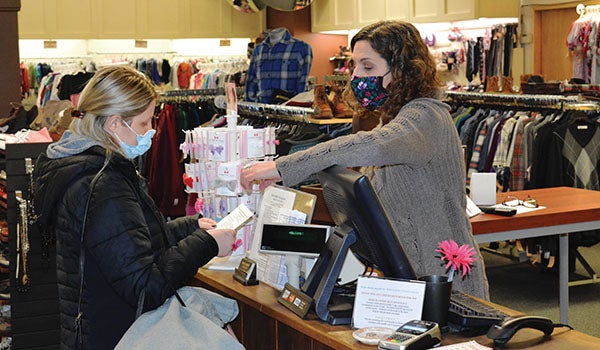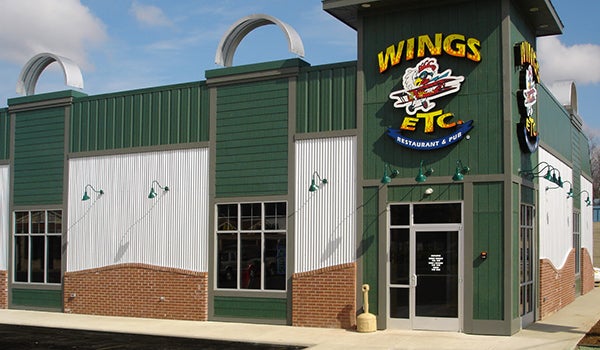State, federal COVID-19 aid on the way for local businesses
Published 9:10 am Thursday, January 7, 2021
|
Getting your Trinity Audio player ready...
|
DOWAGIAC — Help is coming to small businesses impacted by the ongoing COVID-19 pandemic.
Last week, Gov. Gretchen Whitmer signed a $465 million COVID-19 relief bill, and congress passed a $900 billion relief package.
Whitmer’s relief bill includes $55 million to go to small businesses impacted by the pandemic. Grants of up to $20,000 will be made available to small businesses across the state that need support this winter, which may be used for payroll, expenses, rent or mortgage payments, utility expenses, and costs related to reopening the business. The Michigan Strategic Fund will administer funds through the local and nonprofit economic development organizations that participated in the Michigan Small Business Relief Program.
According to the bill, eligible businesses can receive grants if their business has been fully or partially closed by any gatherings or face mask emergency order. The small business must have 100 or fewer employees and grants will be maxed at $20,000 for fully closed businesses and $15,000 for partially closed. Applications for aid are expected to be available in the coming weeks.
Lila Fair, owner of vintage store Somewhere in Time, 113 Pennsylvania Ave., Dowagiac, is conflicted about the aid.
“We’re in a situation where it’s very helpful to us,” she said. “But we can get along without it right there a lot of other people I know who probably need more than what they’re gonna get, and they needed it sooner.”
The relief bill also includes $3.5 million for grants of up to $40,000 each for live music and entertainment venues, including $45 million in direct payments to workers who have been laid off or furloughed as a result of the virus and issued $220 million for the Unemployment Compensation Fund to cover the previously announced extension of benefits from 21 weeks to 26 weeks.
The federal relief and stimulus package will provide an additional $284 billion in funding to the Paycheck Protection Program — which was created to provide a financial backup to prevent employee layoffs and help small businesses through the COVID-19 pandemic — and an additional $13.5 billion for Economic Injury Disaster Loans. First-time borrowers are eligible if they meet the original PPP loan eligibility requirements. Entities eligible for a second PPP loan will include businesses with 300 or fewer employees, some nonprofit organizations, self-employed workers and independent contractors. Borrowers who received forgiven PPP funds will be able to deduct those expenses they used the forgiven loan funds on from their taxes.
Kris Soenen, owner of Who Knew? Consignment, 119 S. Front St., and president of the Greater Dowagiac Chamber of Commerce, said that businesses that are still struggling because of continued shutdowns will be able to apply for funds through their banks.
“Businesses can go to their banks and apply for those funds,” Soenen said. “It’s definitely going to help buoy those who do apply to get through the next six months so we don’t have business closures.”
Like many businesses throughout the state, the pandemic has impacted Fair’s business, which depends primarily on patrons frequenting the store in person.
“It relies heavily on people being able to browse,” Fair said. “When people come into a shop like this, they don’t know what they want. They don’t know what they’re looking for, they’re sometimes looking for a gift idea or they’re looking for something, you know, they think will fit well in their house. With the mask mandates and the limited number of people that can be in it at any given time, it’s really hurt our business. Because of it, a lot of people don’t want to spend half an hour looking around in a store with their masks on.”
Fair’s husband, David, runs Mitchell 300 Reel Repair locations in the same building, as well as a location in Elkhart. While Fair’s store may have had its worst year in eight years, the combination of her store and her husband’s ventures have allowed them to stay afloat amid the pandemic.
“We had our worst year ever, basically,” Fair said. “We’re fortunate in that my husband has another full-time job. He does repair work on machines that are helping the respirators and ambulances, so he’s been busy. We’ve been fine but if we were depending on just this store, we would have been out. I know a lot of other people who were in a very similar situation.”
2020 was a difficult year for many businesses but Fair is optimistic that the new year will be better.
“It’ll be nice when people can come in and browse again. There’s a lot of people that I haven’t seen in a while that don’t actually come in here to buy a lot of stuff, they’re just looking for one thing but they like to talk. There are a lot of lonely people and they may not have a car where they can travel to another town and so they come in here and they chat or they come in here to get warm. They might buy a 50 cent item but there’s a connection there that’s missing. With everybody staying home, I can go online and I can chat with my friends but some of these people don’t. They don’t have internet and don’t have any other outlets. I worry about them because we’ve got a few regulars that I just haven’t seen and I know that they’re in that situation.”






